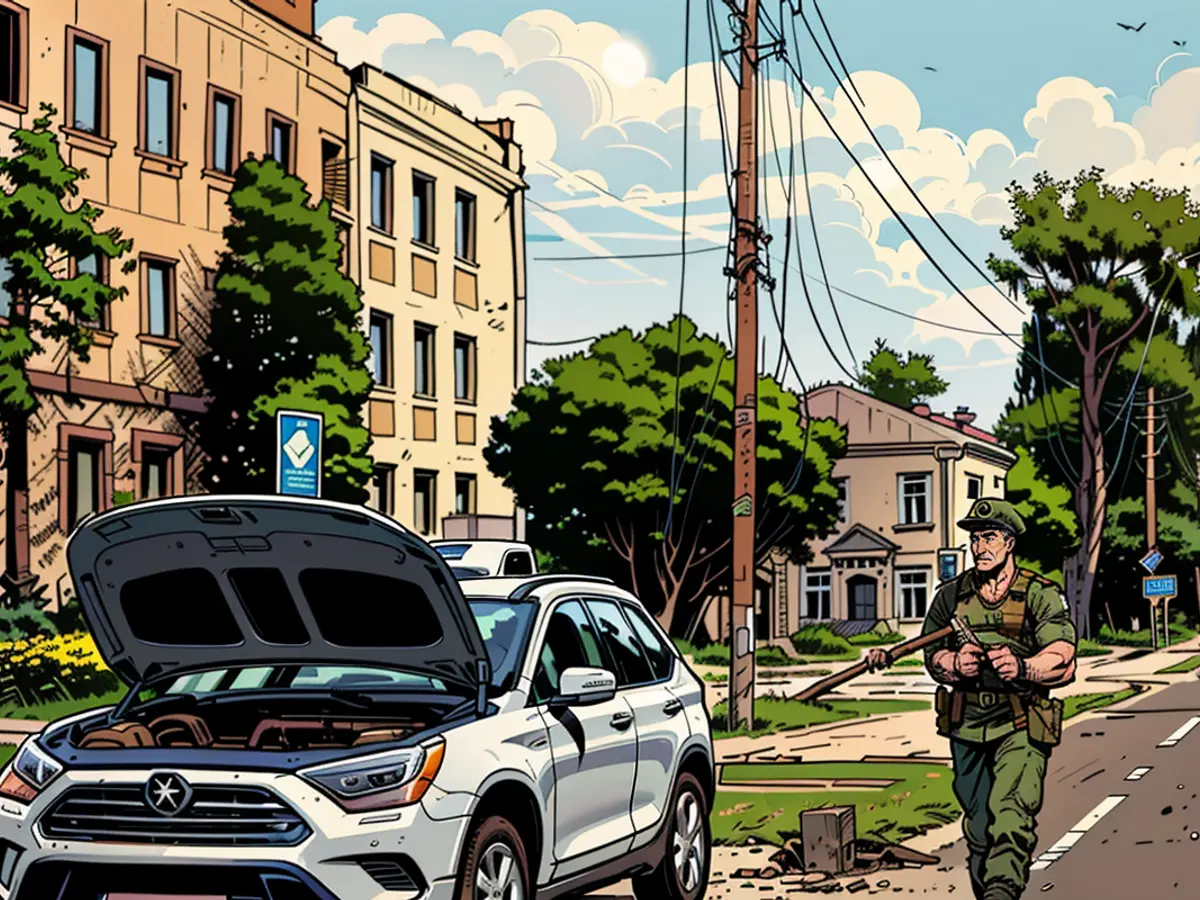- Russian borders witnessed the downing of Ukrainian unmanned aerial vehicles close to Moscow.
In Moscow's vicinity, eleven Ukrainian drones were brought down during the night on Tuesday, seemingly heading towards Russia's capital. According to the Russian Ministry of Defense, a total of 45 Ukrainian unmanned aerial vehicles were intercepted by air defense. There weren't any initial reports of confirmations or statements from Ukrainian forces, and it remained uncertain what kind of drones they were.
Some of these drones fell in the Podolsk district, located about 30 miles south of Moscow's border, as Moscow Mayor Sergei Sobyanin stated. He described it as the largest such attack. The ministry reported that 23 drones were downed over the Bryansk region. In all instances, there were no initial reports of casualties or damage.
Ukraine has been under nightly air attacks ever since Russia's invasion in February 2022. Explosions were reported in the western Ukrainian region of Khmelnytskyi during the night on Tuesday.
Ukraine's advance persists in Kursk. According to their commander, Alexander Syrsky, they now control 1263 square kilometers and 93 settlements in the region. Previously, Ukrainian President Volodymyr Zelenskyy had mentioned controlling 1250 square kilometers and 92 locations.
Zelenskyy commends the military
In a daily video address, held this time in the central Ukrainian industrial city of Kropyvnytskyi, Zelenskyy praised the military. He acknowledged the challenging situation in Ukraine's east, particularly around the cities of Pokrovsk and Toretsk, but said, "The defenders are doing everything to eliminate the invaders." He emphasized progress in the Kursk region, where the Ukrainian army is making further territorial gains. The president highlighted capturing Russian soldiers as a priority to exchange them for Ukrainian prisoners later.
In the two-year-long Russian war against Ukraine, Kyiv's offensive launched two weeks ago marked the first time that war entered the aggressor's territory. Military experts claim the situation in the Kursk region is challenging for the Russian troops stationed there, with units south of the Seym River at risk of being encircled after several bridges were blown up. Videos circulating online showed Ukrainian drones destroying military vehicles attempting to lay makeshift bridges over the river.
Pentagon: Russia struggles in Kursk counteroffensive
The U.S. Department of Defense also assesses that Russia is struggling to respond to Ukraine's counteroffensive in Kursk. Pentagon spokesman Pat Ryder stated in Washington that there are signs Moscow is moving a small number of units into the area but added, "Overall, I would say Russia is really struggling to respond." Ryder emphasized that Ukraine has "clearly put their opponent on the back foot." Ukrainian forces continue to advance into the region.
Regarding whether Washington publicly endorses Ukraine's advance, Ryder did not give a direct answer but referred to President Selenskyj. The US spokesperson explained that Selenskyj had mentioned creating a buffer zone and that discussions with Kyiv continue to understand the exact goals. However, Ryder reiterated that the Ukrainian counteroffensive in Kursk does not change US support for Kyiv.
Russian President Putin draws parallels to terrorism
Russian President Vladimir Putin has struggled to find an appropriate response to Ukraine's advance. During a trip to the Caucasus, he attempted to compare the offensive to a mass hostage-taking incident from 20 years ago. "We know very well that not only was the heinous crime attempted to be justified from abroad, but the terrorists also received all kinds of support: moral, political, informational, and financial," Putin said at a memorial event in the town of Beslan.
In Beslan, over 30 terrorists took more than 1,100 people - children, parents, and teachers - hostage in a school in September 2004. During the storming of the school, 334 people died, more than half of them children. Putin stated that Russia must still fight against these "enemies of Russia" today, who are now committing crimes in the Kursk region and the Donbass. However, he assured that Russia would also defeat the "neo-Nazis," as it did against the terrorists in the past. Putin did not provide evidence linking the Chechen terrorists from back then to the Ukraine defending against Moscow's invasion.
During a subsequent trip to Chechnya, Putin visited a center for training special forces with regional leader Ramzan Kadyrov, where Russian soldiers are now being trained for the war.
Wednesday's significance
On Wednesday, both Putin and Prime Minister Mikhail Mishustin will receive Chinese Premier Li Qiang. Li Qiang is in Moscow from August 20 to 22 at Mishustin's invitation. China is considered Russia's most important partner. Since the start of its invasion, Moscow has become dependent on Beijing. Unlike Europe and the US, China has not condemned Russia's war and has expanded trade with its neighbor despite Western sanctions.
Speech by President Selenskyj
In the context of ongoing conflicts, President Zelenskyy highlighted the importance of capturing Russian soldiers to facilitate prisoner exchanges, as part of Ukraine's counteroffensive strategy against Russia's invasion. Despite Russia's struggles in Kursk, the Russian President Putin draws parallels between Ukraine's defense and past acts of terrorism, such as the 2004 hostage crisis in Beslan.








